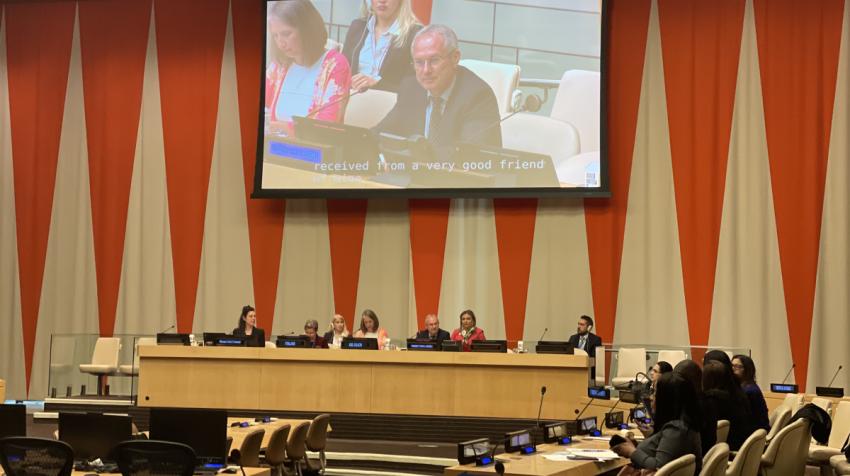Csaba Kőrösi, President of the General Assembly, will convene a half-day meeting on 12 June, which explores how Member States and the UN can enable persons with disabilities to more easily access information and communication.
This directly impacts their ability to live independently and participate fully, equally, and meaningfully in all aspects of life, including in political and public life.
“The doors of our Organization – physical, digital and informational – are out of reach for many to open,” said the President of the General Assembly.
He pointed out that all of us will have a disability at certain point in time, adding that “We just don’t know when it will happen, and for how long it will last.”
He was speaking at a 19 April event with the Department for General Assembly and Conference Management on accessibility and disability awareness for Member States, the UN system, and NGOs in consultative status with ECOSOC.
Participants identified policy, design, and implementation measures that can help mainstream the rights of people with disabilities, such as improving access to UN Headquarters in New York, holding in-person and virtual meetings for inclusivity, and ensuring that UN webpages are easy to find and use.
Mr. Kőrösi pledged to support making accessibility and disability awareness training a tradition at the UN.
He affirmed that mainstreaming the rights of people with disabilities is not only an issue that stands on its own but is a right that must be woven into the work that we do.
After all, no one can enjoy human rights they cannot access.
The 12 June meeting will be held on the margins of the 16th Session of the Conference of States Parties to the Convention on the Rights of Persons with Disabilities.
The Convention on the Rights of Persons with Disabilities was the first comprehensive – and fastest-negotiated – human rights treaty in the history of the United Nations. Since coming into force in 2008, it has been ratified by 185 Member States.
The President of the General Assembly noted that this is a testament to the growing solidarity on the rights of people with disabilities, and a reflection of our shared aspirations.




